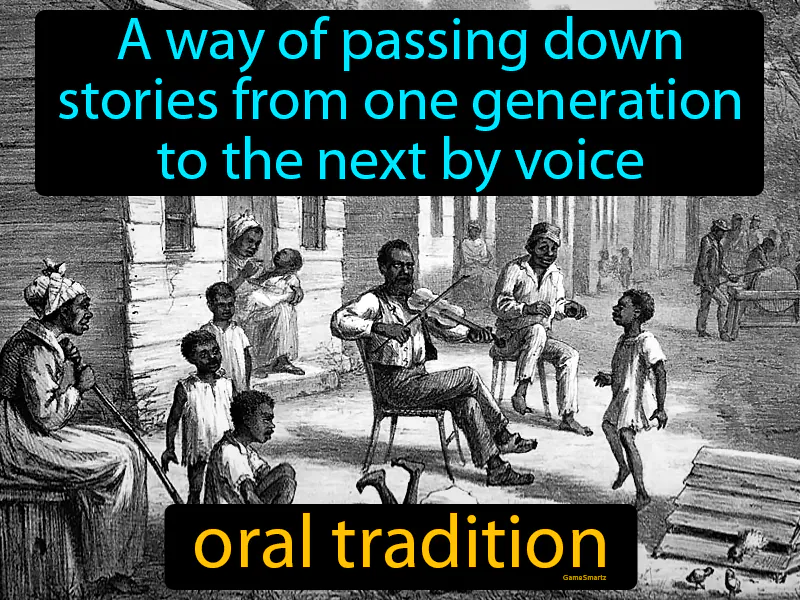Oral Tradition
Oral Tradition: Easy to understand
In the South between 1790 and 1860, oral tradition was crucial for preserving the history, culture, and stories of communities, especially among enslaved African Americans who were often denied formal education. It helped keep their heritage alive by passing down folk tales, spirituals, and personal experiences, providing a sense of identity and resilience. Oral tradition responded to the lack of written records available to these communities and acted as a form of resistance against cultural erasure. Today, oral tradition remains important as families and communities continue to share stories and life lessons verbally, ensuring that cultural values and personal histories are not forgotten. For example, when grandparents tell their grandchildren stories about their own childhoods, they create bonds and pass down valuable wisdom and family history, keeping traditions alive.

Practice Version

Oral Tradition: A way of passing down stories from one generation to the next by voice oral tradition. Oral tradition is the practice of preserving and sharing historical and cultural information through spoken stories and tales.